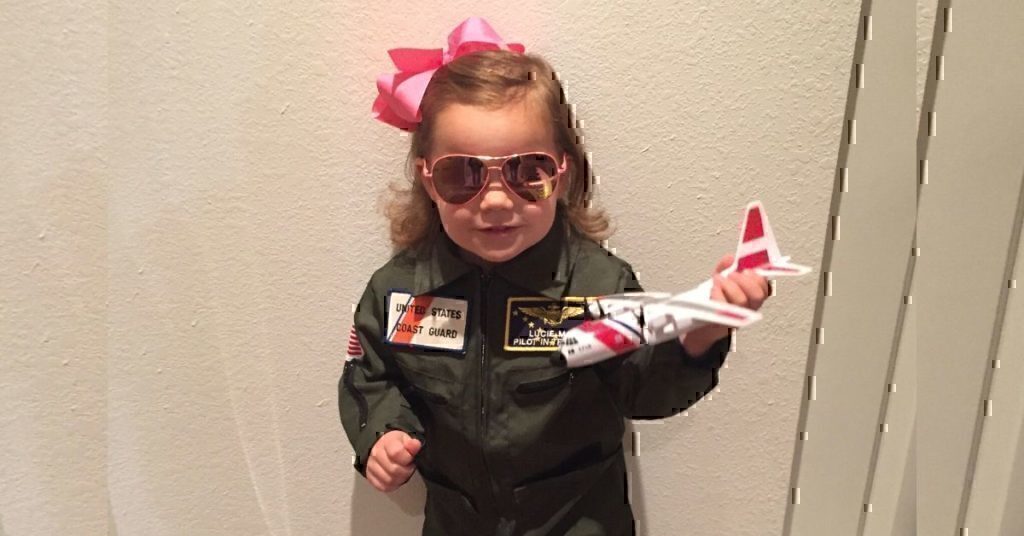I recently wrote an article regarding how military spouses are prepared in ways they did not even realize to handle the effects of COVID-19 on healthcare, the economy, family, society, and normalcy as we know it. This led me to thinking…what about our military children?
April is the Month of the Military Child. This is designated as a time to honor the sacrifices made by military families, specifically emphasizing the experiences of children serving alongside military members.
Military children can be described in many of the same ways as military spouses. They share similar qualities such as resiliency and adaptability. Although most people might refer to them as “Military Brats,” I would venture to say describing them as “Third Culture Kids” is more appropriate. These are more commonly known as the children of ex-pats, missionaries and other personnel who choose to work and live abroad. Military children, whether they live abroad or not, are often playing tug-of-war with several cultures. The military culture is different than that of their civilian friends. For those living internationally, throw the ex-pat, foreign service, and local culture of where they live into the mix, and you have a child who is genuinely confused about who they are and where they belong.
My daughter is six, and in her lifetime, we have lived internationally twice (Jamaica and The Bahamas) and we have lived on four islands. Although she was born in Virginia, we moved to Jamaica when she was 10 weeks old and she has never lived CONUS (inside the continental United States.) Her entire life has been spent on an island. The same could be said for any military child. They are all isolated on a metaphorical island…the island of the military culture. Without her consent, my daughter was thrown into a game of cultural tug-of-war with the military, ex-pat, foreign service, Jamaican, Alaskan, Bahamian, English, American, and above all else, the Island culture. So how does being exposed to so many different cultures help our military children? It gives them an amazing skill set to deal with the world around them, whatever that world might hold, and wherever that world might be. This skill set, whether they know it or not, is helping them to navigate the world right now…a world being shaped by the COVID-19 global pandemic.
Another characteristic of military children is that they are well-versed in the unique language of saying goodbye. There is a quote by an unknown author that circulates in many online formats, especially in the month of April. It reads:
“Military children will say goodbye to more significant people by age 18 than the average person will in their lifetime.”
Think on this. There is a difference between a temporary goodbye and a permanent one. Most of the goodbyes said by military children are of the permanent nature. They say goodbye to their friends, school and community during each PCS move. They say goodbye to one or both parents before long deployments, work trips, or necessary military training. They say goodbye to their relatives back home constantly, most times not knowing when they will see them next. The use of technology has helped to change this in recent years. However, as we all know in this moment of social distancing and self-isolation, socializing with people via technology is a far cry from the personal touch of human interaction.
The harsh reality of the COVID-19 global pandemic is that all of us are now facing new goodbyes. Some of these are temporary, and sadly, some are permanent. Since COVID-19 became a household name, our military children, as well as all children, have had to learn about a vast array of new goodbyes. Goodbye live school, goodbye seeing friends, goodbye play dates, goodbye birthday parties, goodbye outdoor play, goodbye walks, goodbye travel, goodbye sports, goodbye normalcy. It sounds like a cruel version of “Goodnight Moon.”
Unfortunately, many military children have experienced a loss far greater than any of these…the loss of a parent or loved one in the line of duty. They have had to say goodbyes, most of us can only imagine. Military children, much like the children of the first responders to 9/11, and now the children of the first responders to the COVID-19 crisis – EMS, nurses, doctors, healthcare workers, hospital staff, and medical researchers—are forced to shoulder burdens far greater than those of the average child.
Active duty military members, reservists, members of the National Guard and military retirees are also being called upon to serve in this war against COVID-19. Serving alongside many of these heroes are thousands of military children, equipped in unique ways to navigate this unknown new world…a different type of deployment for all. The Month of the Military Child is symbolized by the dandelion, as these children have the ability to bloom where they are planted. The COVID-19 global pandemic is shaping the lives of all children at the moment, whether we as parents like it or not. My hope is that few children have to say goodbye to a loved one in the face of COVID-19. Plant your children and yourselves at home where you are safe. By doing this, you are helping to protect others. This is how normalcy will be able to bloom again for us all. Let us remember in the month of April, especially in the wake of the COVID-19 global pandemic, to salute our smallest heroes.


